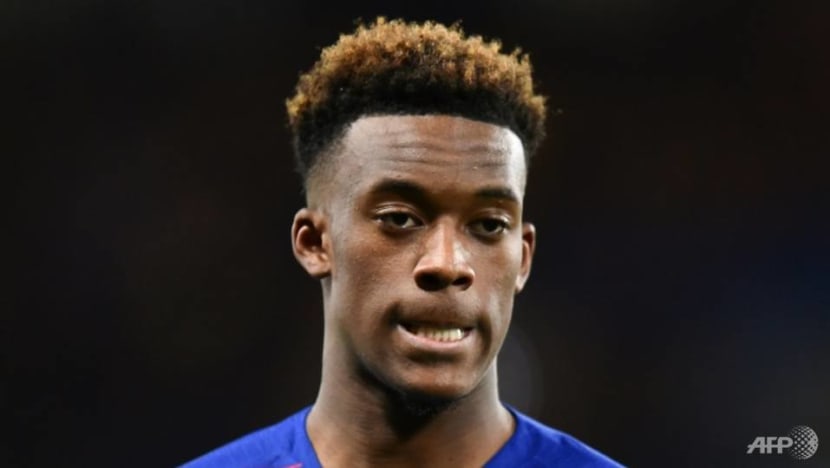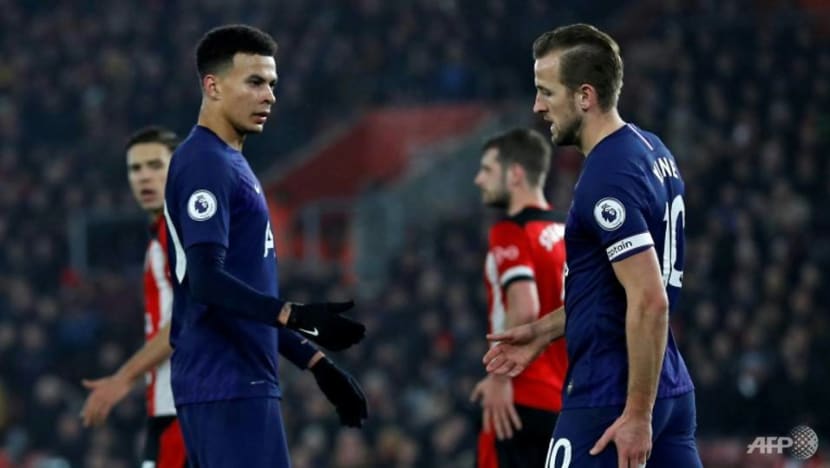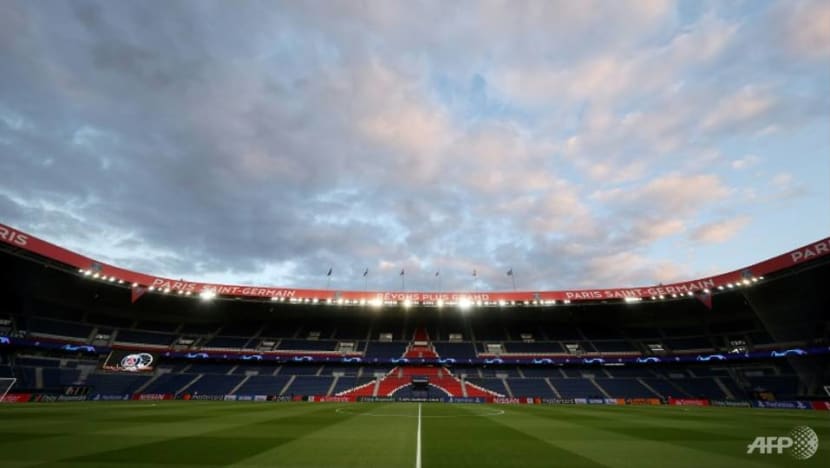commentary Commentary
Commentary: COVID-19 will plunge EPL clubs into financial woes
With infections in Britain showing no signs of decreasing, the English Premier League has to either cancel the current season or delay its restart, says John Duerden.

The English Premier League is to hold an emergency meeting after Mikel Arteta and Callum Hudson-Odoi tested positive for new coronavirus. (Photo: AFP/Glyn KIRK)
SINGAPORE: The English Premier League (EPL) was suspended on Mar 13 after Arsenal manager Mikel Arteta and Chelsea winger Callum Hudson-Odoi both tested positive for COVID-19.
After more than a month of its suspension, there is much discussion now on how the clubs can survive financially and what the future holds for the world’s most popular football league.
FEELING THE FINANCIAL HEAT
Much of that discussion hinges on how the current EPL season will culminate – will it resume after a period of suspension, and when that may be, or if it will be cancelled and voided?
With deaths from the virus in the United Kingdom climbing to over 11,000 on Apr 14, a restart is unlikely anytime soon.
Just like economies, industries and companies are reeling from the effects of the coronavirus, the football industry is not immune either. Even the richest league in the world – the EPL – is already seeing the financial strains of a sudden and uncertain disruption.
The 20 teams participating in the EPL raked in a total broadcasting income of US$10.95 billion for the 2016 to 2019 period. This large sum meant that even smaller clubs such as Burnley received US$130 million in revenue from television and prize money in the 2018 to 2019 season alone.
That does not mean that clubs are all sitting on vast reserves of cash as only 12 of the 20 teams in the EPL posted a profit in the 2018 financial year.
READ: Commentary: Smokers, you have a higher risk of COVID-19 infection
The thing is these clubs have a high cost structure, with a majority of those costs in the form of salaries. For instance, at the end of the 2017 to 2018 season, the last full campaign with confirmed data, the EPL’s total ratio of wages to revenue increased to 60 per cent from 55 per cent the previous year.
Crystal Palace, Everton, Bournemouth, Leicester City and Southampton had the top five highest ratios ranging from 75 per cent to 78 per cent.
A DELAY IN RESTARTING
These high salary costs mean that despite the season being currently suspended, clubs are still facing substantial costs as staff wages are still being paid.

With high wage to revenue ratios, if the current season continues to be suspended past June - when the Premier League hopes to resume - then some clubs are going to face serious financial problems.
If the current season, three-quarters finished when it was suspended, is cancelled and does not finish at all then Burnley could lose as much as US$62.1 million in television, match day and commercial revenue.
READ: Commentary: It’s not just work and the economy. COVID-19 is also changing how we use social media
"The fact of the matter is, if we don’t finish the season and there isn’t a clear start date for next season, we, as a club, will run out of money by August,” Burnley Chairman Mike Garlick told the media on Apr 4.
HIGH WAGE COSTS
While player salaries make up the bulk of outgoings, modern Premier League clubs have substantial non-playing staff.
Manchester United, whose goalkeeper David De Gea is reportedly the highest paid player in the league at an astonishing US$465,000 a week, has 900 employees and have announced that all will be paid in full during the season’s suspension.
Other clubs are going down different routes in trying to cut costs and this issue has proven to be controversial.
Newcastle United were the first in the Premier League to put non-playing staff on furlough - that is temporary leave. This means, as part of measures announced by the United Kingdom in March, that the government will subsidise 80 per cent of those salaries up to US$3,107 with the employers providing the rest.
Newcastle, like Norwich City, will top up the remaining 20 per cent to ensure that staff receive their full salary.
READ: Commentary: Beware the incoming pandemic of boredom
There has been plenty of debate as to whether clubs should still be paying their star players millions a month while making use of taxpayer funds to pay other wages but some turned to the government assistance in a bid to not fall deep into financial losses.
THE BIG ONES NEED HELP TOO
Even big clubs like Liverpool face financial risks with the season suspension and turned to furlough to help its cash flow situation.
However, Liverpool’s decision to do that caused a major storm. The club, reportedly the seventh richest in the world - it recorded a profit of US$52 million last season - announced on Apr 4 that it would also use the government assistance scheme. Former players and commentators criticised the move.
Two days later the decision was reversed with Liverpool's Chief Executive Peter Moore saying: "We believe we came to the wrong conclusion last week and are truly sorry for that."
"Despite the fact we were in a healthy position prior to this crisis, our revenues have been shut off yet our outgoings remain," said Moore. “...The club continues to prepare for a range of different scenarios, around when football can return to operating as it did before the pandemic. These scenarios range from best case to worst, and everything in between.”

The worst case scenarios of the current suspension sees it last well into the second-half of 2020. That will mean that it will become more difficult for clubs like Burnley to avoid the hard decisions and warnings as financial survivability becomes a real issue.
A POORER LEAGUE
Even if short-term survival is assured and the league restarts, it is possible that there is less money around the sport.
READ: Commentary: COVID-19 collapse exceeds any recession in the last 150 years
With economic slowdown around the world, millions losing jobs and the prospect of a severe depression, clubs will be concerned that sponsors are going to be harder to find or keep.
Fans are likely to have less money in their pockets and ticket prices may have to be reduced while clubs may also have to refund or compensate ticket holders for matches that had been postponed during this suspension period.
Broadcasters such as Sky Sports and BT Sport could also lose revenue from a drop in subscription if the economic downturn causes widespread unemployment and income loss as well as advertising revenue from corporations that may need to cut their spending to stay afloat.
This could cause an existential threat to the league in its present form as it relies heavily on broadcasting revenue.
If that happens, then many of the clubs in the EPL may be cash-strapped and forced to trim their squads or sell their highest-paid players.
Yet there may not be many options for these players to go to with the grim situation likely to be similar in all the major leagues across Europe such as in Spain, Germany, France and Italy.
Of course what could be worse for the clubs than an extended suspension of the league is if it is cancelled without being completed. If the season is not finished then the collective loss to the 20 EPL clubs is estimated to be US$1.36 billion. That may just be the beginning.
“Anyone who hasn’t managed the balance sheet properly is going to be in trouble,” an EPL adviser told the Financial Times this week.
“There are clubs out there who will not come out the other side. This is going to be the end of the game for a lot, including in the Premier League.”
It appears that whichever decision the EPL takes – to extend its suspension or cancel the current season altogether – the top flight of English football may end up looking like a much poorer version of the billion-dollar industry we have come to know.
A quick end to COVID-19 is something that the bosses and players of EPL clubs will be hoping for too, just like the rest of us.
BOOKMARK THIS: Our comprehensive coverage of the coronavirus outbreak and its developments
Download our app or subscribe to our Telegram channel for the latest updates on the coronavirus outbreak: https://cna.asia/telegram
John Duerden has lived in Asia for 20 years and covers the region’s sporting scene. He is the author of three books including Lions & Tigers - The History of Football in Singapore and Malaysia (2017).












